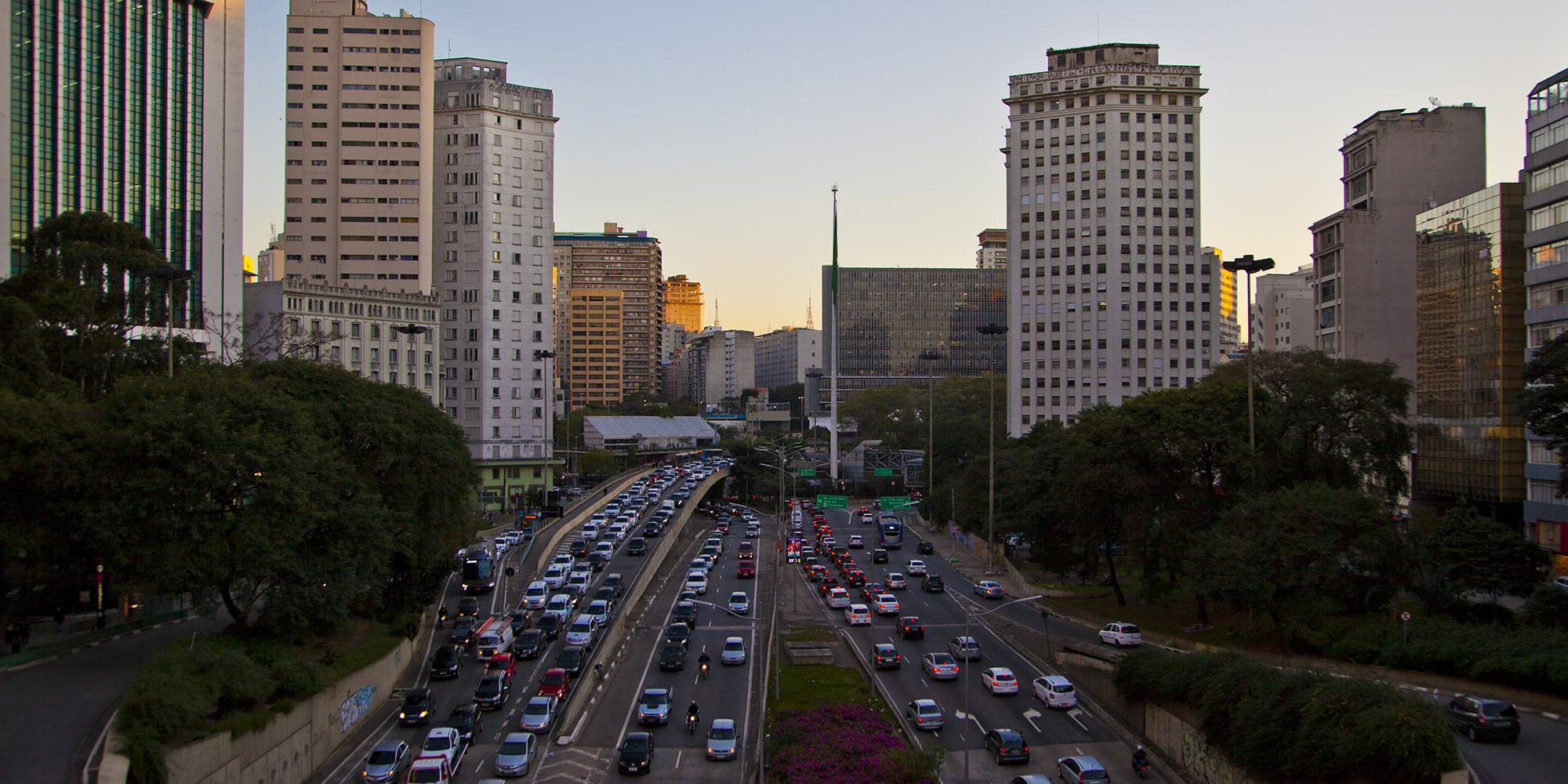A Taste of Ramadan in São Paulo
Peter Speetjens had the privilege of spending a day amid the city's established Muslim community.
São Paolo: As the sun sets over São Paolo, the small, blue-carpeted mosque at the Liga da Juventude Islâmica Beneficente do Brasil (Beneficent Islamic Youth League of Brazil) fills up for the evening prayer. On entering everyone is presented with two dates wrapped in white paper to break the fast.
Brazilian sheikh Rodrigo Rodriguez, who studied theology at the King Saud University in Riyadh, Saudi Arabia, leads the prayer. Afterwards, the 200 attendees climb the stairs to the Liga’s dining hall on the first floor for iftar. On the menu: rice, beans and beef, accompanied by water and lemonade and some sweets for dessert.
The crowd is varied. After a chat with a Pakistani medical equipment salesman, I share a table with a Moroccan, Jordanian, Syrian and two Nigerians. Originally from Amman, Jordanian Salim has lived in Brazil for 18 years. He used to teach English, but now sells perfumes.
“Sheikh Rodrigo Rodriguez is quite famous in Brazil,” said Jordanian Salim. “He converted to Islam in the 1990s. He speaks well and doesn’t mix politics into his sermons.”
Situated in the district of Bras close to the old city centre, the Liga was established in 1995. It is a non-profit organisation that aims to propagate the teachings of Islam and provide social assistance to Muslims and other Brazilians in need of support.
“It’s a work of redistributing what God gave us to people in need,” said Liga president Omar Aref, who is of Lebanese descent. “The Liga was established by Lebanese businessmen in the neighbourhood. Although the area has changed over the years, they are still our main donors.”
Bras is a sprawling, lower middle-class shopping area traditionally home to immigrants. At the turn of the 20th century they were mainly Italian, followed by the Lebanese. The last few decades has seen immigrants arrive from just about anywhere in the world.
Facing the metro station are mainly Haitian and African street vendors. Facing the Liga is a Bangladeshi supermarket nestled next door to a Korean restaurant. While most of the Lebanese have relocated to other parts of São Paulo, their presence is still visible in names like Beirut Restaurant, Litani Jeans, Anisa Moda and, of course, the Shiite Mesquita do Bras (Bras Mosque).
The nearby neighbourhood of Cambuci boasts the Sunnite Mesquita do Brasil (Brazil Mosque). Built in 1929 by the Sociedade Beneficente Muçulmana (Muslim Charitable Foundation) founded by Egyptian national Abdallah Abdelshakour, it is Brazil’s oldest mosque.
Fambras Ramadan
According to the Federation of Muslim Associations in Brazil (Fambras), there are 24 mosques, four Islamic schools and over 50 Islamic centres nationally.
“For Ramadan we bought some 28 tonnes of beef and chicken (that) we donated to mosques and Islamic centres in and around São Paulo,” said Nizar Ghandour, Fambras’ international relations manager. “We also hand out food to non-Muslims in some of the city’s favelas. To mosques and religious centres elsewhere in the country we offer money, as it is too hard to transport meat and food across this huge country.”
Founded in 1979 by Lebanese national Hussein el Zoghbi, Fambras is mostly known as Brazil’s leading halal certifier. Yet, it has always been active in the social and humanitarian sphere by promoting the faith and helping people in need – both in and outside Brazil’s Muslim community – by offering food donations, medical assistance and scholarships.
“A percentage of our work as a halal certifier goes to our humanitarian mission,” said Ghandour, who is also Lebanese. “During Ramadan we offer a lot to the Liga in Bras, as it is an area that houses many immigrants in need.”
According to a 2020 survey by the Arab Brazilian Chamber of Commerce (ABCC) Arabs and their descendants make up 6% of the Brazilian population. Considering a two-percentage point error margin, ABCC estimates the Brazilian population of Arab descent ranges between 9.5 million and 13.7 million
Most respondents were natives or descendants from Lebanon (27%), Syria (13%) and Morocco (6%). Muslims made up 16% of the Arab population, translating into some 1.9 million people or 1% of Brazil’s total population. However, this does not include the country’s still small, yet steadily growing, number of Muslims of Asian and African descent.
After the Iftar at the Liga, Jordanian Salim invites me for an Arabic coffee at a Lebanese supermarket across Praça Padre Bento. Its owner has been in Brazil for over 34 years and sells traditional Lebanese products and sweets including homemade knefeh!
Thus ends a perfect day of Ramadan in São Paulo. Perfectly!
|
Read - Q&A with Ali Hussein El Zoghbi, VP of Brazil’s FAMBRAS, South America’s largest halal certifier Read - Foz do Iguaçu to become first halal certified city in Brazil |
© SalaamGateway.com 2022. All Rights Reserved
